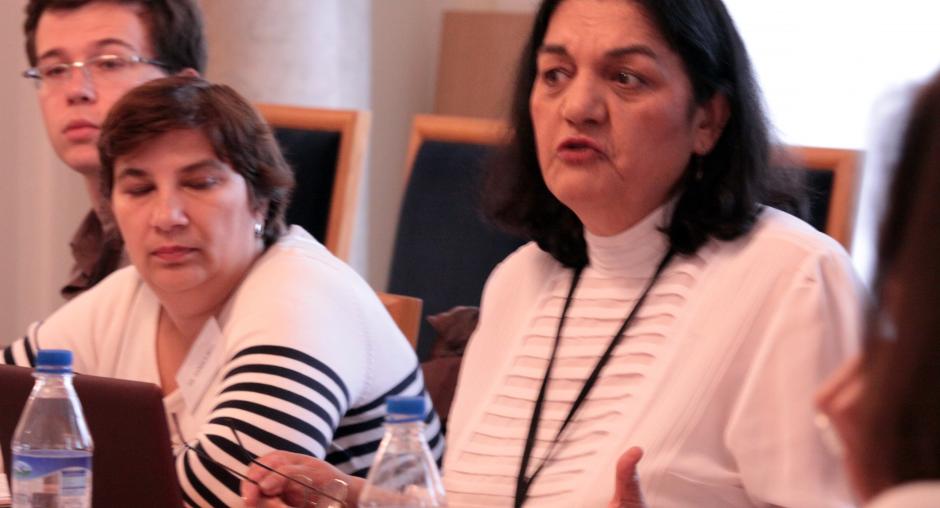Teaching of the Roma and Sinti genocide is crucial to addressing discrimination, say participants at OSCE meeting

Teaching about the history of the Roma and Sinti genocide at the hands of the Nazis should be promoted as one element in countering the discrimination Roma communities face today, as well as in order to pay respect for the victims, participants said at an expert meeting in Warsaw on 2 June 2014.
The meeting, organized by the OSCE Office for Democratic Institutions and Human Rights (ODIHR), brought together participants from Roma and Sinti civil society organizations and from academia to discuss experiences and good practices within the OSCE area on teaching about the Roma and Sinti genocide during World War II.
Mirjam Karoly, Senior Adviser for Roma and Sinti Issues at ODIHR, stressed the importance of teaching about the Roma and Sinti genocide in public schools in the current political context.
“This is particularly relevant in view of combating existing stereotypes and prejudices against Roma and Sinti,” Karoly said. “That far-right politicians, and sometimes even those from more mainstream parties, still try to utilize racist stereotypes to increase their own popularity is a cause for serious concern.”
“In many countries, there is neither awareness nor any negative feelings regarding the Nazis’ persecution of the Roma during the Holocaust,” said Agnes Daroczi, Roma rights activist and author. “We have to get official recognition and teach all children about what has happened to our people in order to stop further discrimination and racism against Roma in Europe.”
The participants emphasized that the Roma and Sinti genocide is recognized at least semi-officially in many countries, and that commemorations are organized mainly by the Roma and Sinti civil society organizations.
“We have to educate young people, particularly Roma youth, about our past,” said Karolina Mirga, the Secretary General of the ternYpe International Roma Youth Network. “Roma youth can become partners in teaching about the Roma and Sinti genocide, and, therefore, help overcome existing prejudices against Roma and Sinti.”
